Taiwan presidential election 2024: What truly matters
As the world is set up for a chess match between the global powers, the tussle surrounding the upcoming Taiwan presidential election next year is a preview of what is to come. Commentator Wei Da explores how Taiwan can make decisions at the election that would optimise Taiwan's long-term and fundamental interests, and draws some lessons from history.
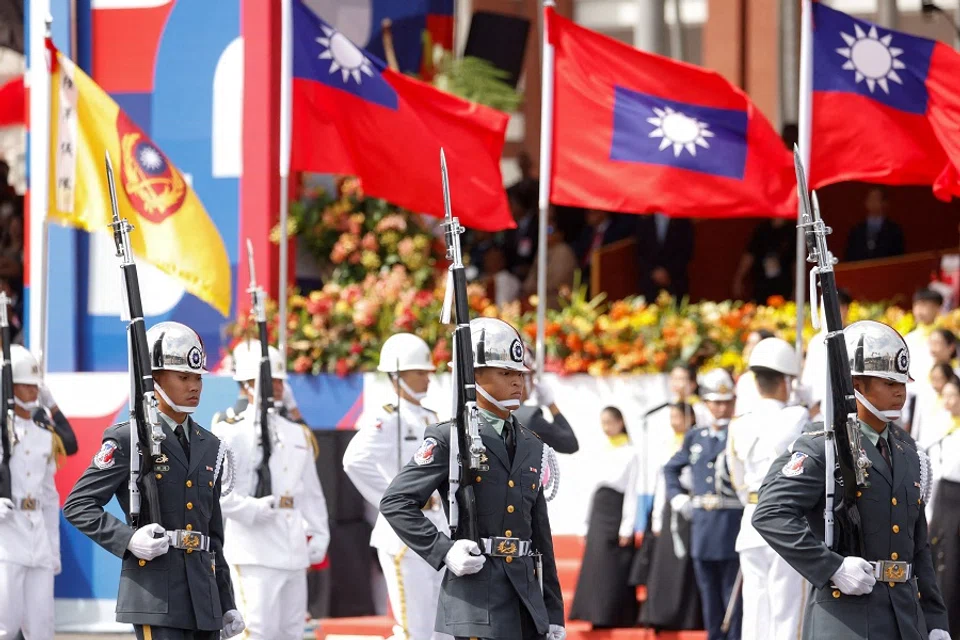
All eyes are on the upcoming 2024 presidential elections in Taiwan. I wonder if the Kuomintang (KMT) and Taiwan People's Party (TPP) recognise that people are victims of circumstance, despite their fixation on the electoral objectives and manipulations of the "Blue-White alliance" and "down with the Democratic Progressive Party (DPP)". The overall global situation will ultimately determine the outcome of the upcoming election in Taiwan.
Taiwan's 2024 presidential election has in fact become yet another new frontier for the world to choose sides and decide their future; there may not be gunfire, but it will certainly be a stirring battle.
This means that only the candidates and parties that go with the flow of global trends and meet the requirements of this major chess game will win the elections. Some may say that the largest common factor in this tussle is the maintenance of peace in the Taiwan Strait, which is in the basic interests of all parties - this is not a bad way to put it. Now, here is the key question: how do we effectively defend and maintain peace, stability and prosperous development in the Taiwan Strait and the whole of the Indo-Pacific region in the next few years?
The role of history
To answer this question, we must first review and draw on the insights and lessons of history. For example, just before the outbreak of WWII, fascist Germany, Italy and Japan formed the Axis alliance; their ruthless ambition to invade and dominate the world was clear to see, yet the other major countries and regions of the world were not prepared to deal with this new, changing situation.
At that time, the whole of Europe (including the UK) advocated a policy of appeasement towards Nazi rise and expansionism. The Soviet Union in the east was also pleased to see the Nazi problem move west, as it sought to gain from it. The US, separated by the Atlantic and Pacific Oceans, continued with its so-called policy of isolationism, and was unwilling to intervene in affairs in Eurasia.
In the Indo-Pacific region, imperialist Japan had made its move on northeast China (specifically the three provinces of Heilongjiang, Jilin and Liaoning), but the major Asian countries - including China - were still in a stupor, either preoccupied with autocratic civil war, or feeling removed from and unfamiliar with the modern world.
...appeasement proven to be a grave mistake.
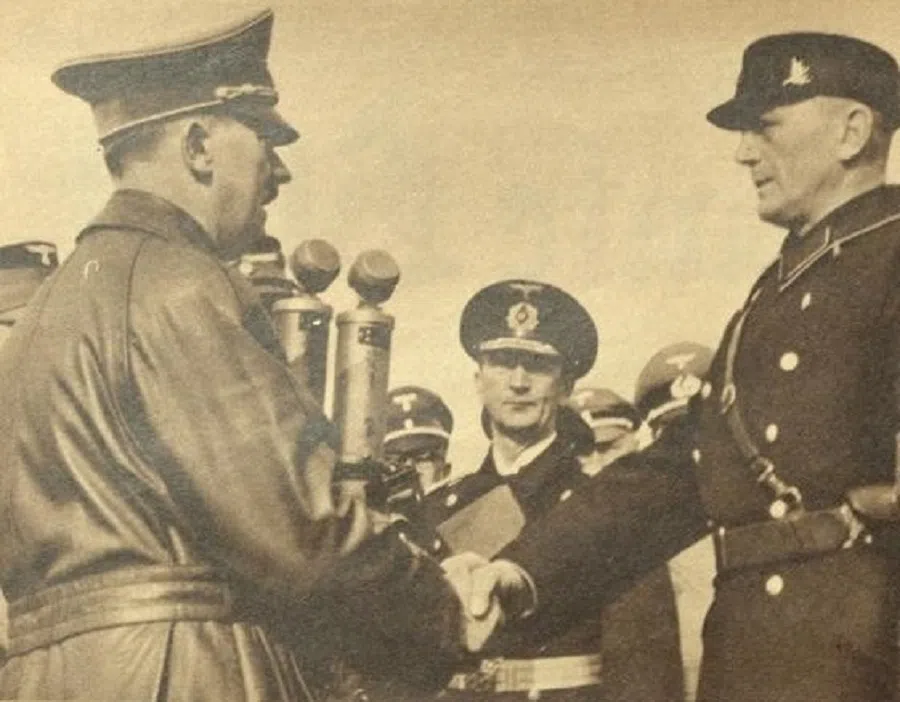
At this critical juncture, the actions and strategic decisions of the UK - then the leader of the civilised world - proved to be a deciding factor in the future of humanity and the world.
Before the start of WWII, British Prime Minister Neville Chamberlain advocated negotiating with Hitler's Germany on appeasement in order to secure peace in Europe. To that end, Chamberlain was willing to sign the notorious Munich Agreement with the Nazis, proactively choosing to give up Czechoslovakia's Sudetenland. This was in effect the modern day version of the parable "Mr Dong Guo and the Wolf", where a man called Dong Guo rescues a wolf from being hunted, only for the wolf to try and eat him, before it is eventually killed for its treachery.
Policy of appeasement
History shows that Chamberlain's concession to the Nazis only whetted the appetite of the fascists in Germany - not long after that, the whole of Europe was embroiled in WWII, with humanity and the world once again mired in an unprecedented catastrophe, and appeasement proven to be a grave mistake.
The silver lining is that the UK and its people finally woke up, resolutely choosing Winston Churchill - a firm advocate of resisting and fighting back against the Nazis - as the new prime minister and wartime leader of the UK. Churchill led the UK, its people and military in a fight to the death with the fascists. Together with the US, Soviet Union, China and other allies, they eventually stamped out the fascist Axis, and ushered in the present age of peace, progress and development for the modern world and civilisation.
Notably, at the first UK general election held after the war in 1945, Churchill the wartime strongman was defeated, and he lamented that the British people had matured and no longer needed him in peacetime.
... in times of great trials such as before a war, a country needs to choose courageous and strong leaders with effective and vigorous policies and measures to pursue security through strength and ensure peace through retaliation...
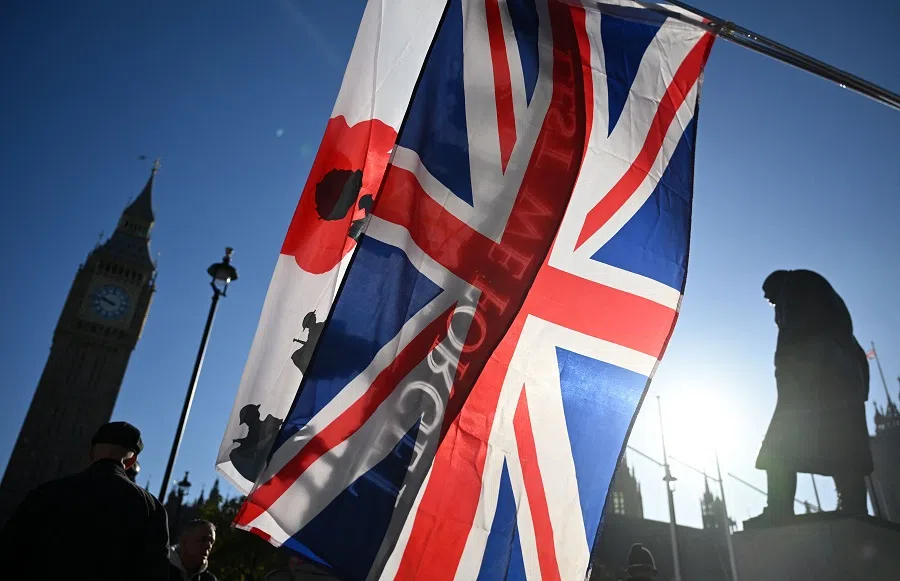
However, when the Cold War broke out a few years later, Churchill became prime minister again, and led Britain's efforts in defending freedom and winning the Cold War. Each time I am in London, I always visit Churchill's statue in Parliament Square; I can never imagine what Europe, or even the world, would have been like under Nazi rule.
The history of the UK before and after World War II is enough to get the present generation to learn from the past. In peacetime, political party rotations, leadership changes and moderate national policies are necessary and reasonable. This is a normal relay process of a civilised government, which is also in the best interest of the country and its people.
But in times of great trials such as before a war, a country needs to choose courageous and strong leaders with effective and vigorous policies and measures to pursue security through strength and ensure peace through retaliation. Appeasement and moderation do not work in times like these and will only lead the country and its people astray.
... the priority for Taiwan at the moment is to overcome certain narrow-minded small-island thinking and traditional mindsets...
Security and the military
And reality presents us with stark contrasts: in the summer of 2021 when US forces were withdrawing from Afghanistan, the Taliban waged an insurgency, and Afghanistan's elected government instantly collapsed. Its president fled the country, surrendering Afghanistan to the Taliban's barbaric and backward medieval-era rule.
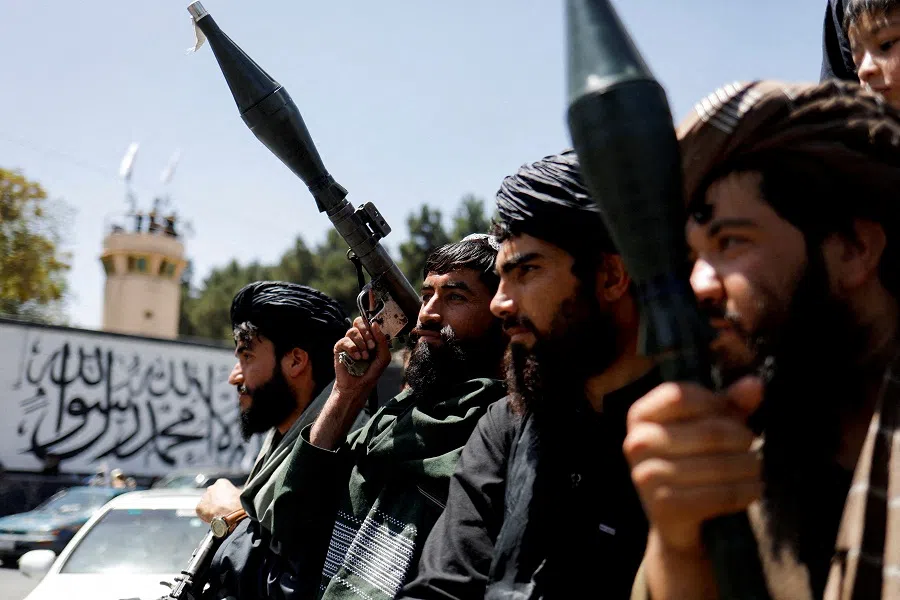
In February 2022, Russia brazenly launched a massive attack on Ukraine with the intention of destroying the Ukrainian government within 72 hours, and occupying and annexing the country. However, under the heroic and resolute leadership of Ukrainian President Volodymyr Zelenskyy, Ukraine has withstood Russia's aggressive invasion. Facing the ferocious polar bear, Zelenskyy, along with the military and people, has knocked out several of Russia's fangs and is now on the offensive instead of the defensive, recapturing lost land.
I think the priority for Taiwan at the moment is to overcome certain narrow-minded small-island thinking and traditional mindsets, and to grow and develop a global viewpoint and a contemporary perspective that takes into account the global situation.
It should not apply its experiences from a decade ago to today's context, mistake a moving target for a stationary one, or allow self-righteousness to become self-deception. This will help to accurately define Taiwan's role and function in the years to come, and make decisions at the election that would optimise Taiwan's long-term and fundamental interests.
Taiwan's main concern in the next few years is undoubtedly to defend the bottom line of democracy, freedom, and the rule of law, and to continue advancing a modern civilisation amid the dramatic travails of the international situation...
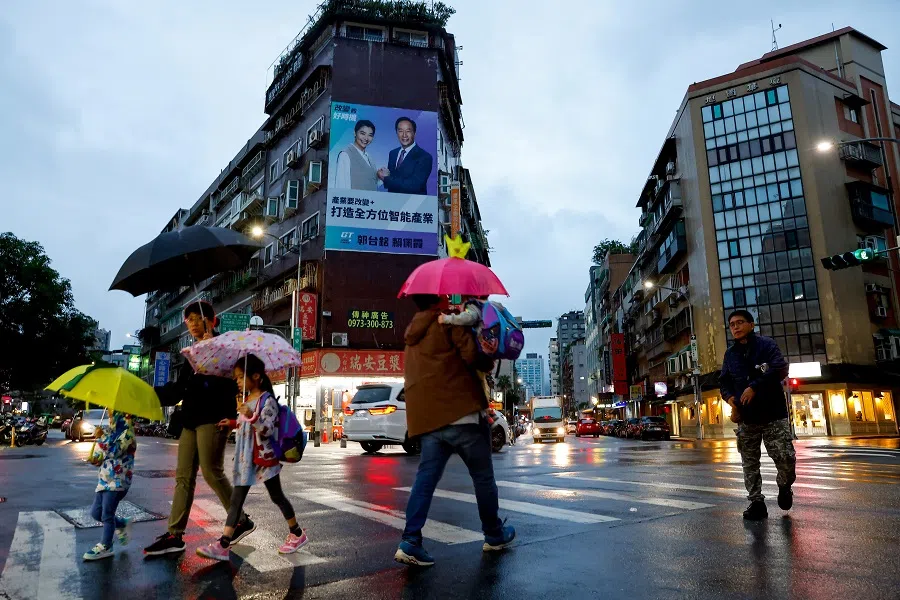
Based on the global situation at present, Taiwan's main concern in the next few years is undoubtedly to defend the bottom line of democracy, freedom, and the rule of law, and to continue advancing a modern civilisation amid the dramatic travails of the international situation, because the values and achievements of modern civilisation are truly priceless, and are difficult to get back once lost or rolled back.
In this aspect, Taiwan needs to remember that it has no more room or opportunities for trial and error - is the mirror of history not sufficiently powerful? One serious misstep and it would be too late for regrets; there is a very fine line between good and bad decisions.
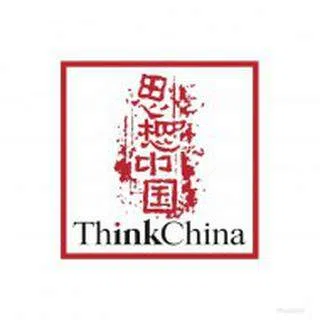



![[Big read] When the Arctic opens, what happens to Singapore?](https://cassette.sphdigital.com.sg/image/thinkchina/da65edebca34645c711c55e83e9877109b3c53847ebb1305573974651df1d13a)
